This is an old revision of this page, as edited by ClueBot NG (talk | contribs) at 10:20, 26 March 2014 (Reverting possible vandalism by Wiki is bad 12345 to version by Smalljim. False positive? Report it. Thanks, ClueBot NG. (1764355) (Bot)). The present address (URL) is a permanent link to this revision, which may differ significantly from the current revision.
Revision as of 10:20, 26 March 2014 by ClueBot NG (talk | contribs) (Reverting possible vandalism by Wiki is bad 12345 to version by Smalljim. False positive? Report it. Thanks, ClueBot NG. (1764355) (Bot))(diff) ← Previous revision | Latest revision (diff) | Newer revision → (diff)A mathematician is a person with an extensive knowledge of mathematics who uses this knowledge in their work, typically to solve mathematical problems. Mathematics is concerned with numbers, data, collection, quantity, structure, space, models and change.
Mathematicians involved with solving problems outside of pure mathematics are called applied mathematicians. Applied mathematicians are mathematical scientists who, with their specialized knowledge and professional methodology, approach many of the imposing problems presented in related scientific fields. With professional focus on a wide variety of problems, theoretical systems, and localized constructs, applied mathematicians work regularly in the study and formulation of mathematical models. Mathematicians and applied mathematicians are considered to be two of the STEM (science, technology, engineering, and mathematics) careers.
The discipline of applied mathematics concerns itself with mathematical methods that are typically used in science, engineering, business, and industry; thus, "applied mathematics" is a mathematical science with specialized knowledge. The term "applied mathematics" also describes the professional specialty in which mathematicians work on problems, often concrete but sometimes abstract. As professionals focused on problem solving, applied mathematicians look into the formulation, study, and use of mathematical models in science, engineering, business, and other areas of mathematical practice.
Education
Mathematicians usually cover a breadth of topics within mathematics in their undergraduate education, and then proceed to specialize in topics of their own choice at the graduate-level. In some universities, a qualifying exam serves to test both the breadth and depth of a student's understanding of mathematics; the students who pass are permitted to work on a doctoral dissertation.
Motivation
| This section does not cite any sources. Please help improve this section by adding citations to reliable sources. Unsourced material may be challenged and removed. (March 2013) (Learn how and when to remove this message) |
Mathematicians do research in fields such as logic, set theory, category theory, abstract algebra, number theory, analysis, geometry, topology, dynamical systems, combinatorics, game theory, information theory, numerical analysis, optimization, computation, probability and statistics. These fields comprise both pure mathematics and applied mathematics and establish links between the two. Some of the fields they work in is, such as the theory of dynamical systems, or game theory, are classified as applied mathematics due to the relationships they possess with physics, economics and the other sciences. Whether probability theory and statistics are of theoretical nature, applied nature, or both, is quite controversial among mathematicians. Other branches of mathematics, however, such as logic, number theory, category theory or set theory are accepted as part of pure mathematics, though they find application in other sciences (predominantly computer science and physics). Likewise, analysis, geometry and topology, although considered pure mathematics, find applications in theoretical physics—string theory, for instance.
Though it is true that mathematics finds diverse applications in many areas of research, a mathematician does not determine the value of an idea by the diversity of its applications. Mathematics is interesting in its own right, and a substantial minority of mathematicians investigate the diversity of structures studied in mathematics itself. However, among academic mathematics, the majority of mathematical papers published in the United States are written by academics outside of mathematics departments.
Furthermore, a mathematician is not someone who merely manipulates formulas, numbers or equations—the diversity of mathematics allows for research concerning how concepts in one area of mathematics can be used in other areas too. For instance, if one graphs a set of solutions of an equation in some higher dimensional space, he may ask about the geometric properties of the graph. Thus one can understand equations by a pure understanding of abstract topology or geometry—this idea is of importance in algebraic geometry. Similarly, a mathematician does not restrict his study of numbers to the integers; rather he considers more abstract structures such as rings, and in particular number rings in the context of algebraic number theory. This exemplifies the abstract nature of mathematics and how it is not restricted to questions one may ask in daily life.
In a different direction, mathematicians ask questions about space and transformations that are not restricted to geometric figures such as squares and circles. For instance, an active area of research in differential topology concerns itself with the ways one can "smooth" higher dimensional figures. In fact, whether one can smooth certain higher dimensional spheres was, until recently, an open problem — known as the smooth Poincaré conjecture. Another aspect of mathematics, set-theoretic topology and point-set topology, concerns objects of a different nature from objects in our universe, or in a higher dimensional analogue of our universe. These objects behave in a rather strange manner under deformations, and the properties they possess are completely different from those of objects in our universe. For instance, the "distance" between two points on such an object, may depend on the order in which you consider the pair of points. This is quite different from ordinary life, in which it is accepted that the straight line distance from person A to person B is the same as that between person B and person A.
Another aspect of mathematics, often referred to as "foundational mathematics", consists of the fields of logic and set theory. These explore various ideas regarding the ways one can prove certain claims. This theory is far more complex than it seems, in that the truth of a claim depends on the context in which the claim is made, unlike basic ideas in daily life where truth is absolute. In fact, although some claims may be true, it is impossible to prove or disprove them in rather natural contexts.
Category theory, another field within "foundational mathematics", is rooted on the abstract axiomatization of the definition of a "class of mathematical structures", referred to as a "category". A category intuitively consists of a collection of objects, and defined relationships between them. While these objects may be anything (such as "tables" or "chairs"), mathematicians are usually interested in particular, more abstract, classes of such objects. In any case, it is the relationships between these objects, and not the actual objects that are predominantly studied.
Occupations
According to the Dictionary of Occupational Titles occupations in mathematics include the following.
- Mathematician
- Operations-Research Analyst
- Mathematical Statistician
- Mathematical Technician
- Actuary
- Applied Statistician
- Weight Analyst
Notable mathematicians
Some notable mathematicians include Johann Bernoulli, Jacob Bernoulli, Aryabhata, Bhāskara II, Nilakantha Somayaji, Andrey Kolmogorov, Alexander Grothendieck, John von Neumann, Alan Turing, Kurt Gödel, Augustin-Louis Cauchy, Georg Cantor, William Rowan Hamilton, Carl Jacobi, Nikolai Lobachevsky, Joseph Fourier, Pierre-Simon Laplace, Alonzo Church, and Nikolay Bogolyubov.
-
 Euclid, fl. 300 BC
Euclid, fl. 300 BC
-
 Archimedes, c. 287 – 212 BC
Archimedes, c. 287 – 212 BC
-
 Brahmagupta, 598 - 670
Brahmagupta, 598 - 670
-
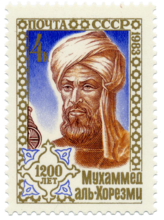 Muḥammad ibn Mūsā al-Khwārizmī, c. 780 - 850
Muḥammad ibn Mūsā al-Khwārizmī, c. 780 - 850
- Omar Khayyám, 1048 - 1131 Omar Khayyám, 1048 - 1131
-
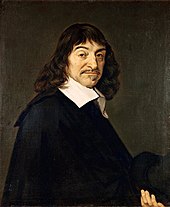 René Descartes, 1596 - 1650
René Descartes, 1596 - 1650
-
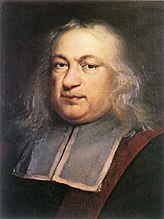 Pierre de Fermat, 1601 - 1665
Pierre de Fermat, 1601 - 1665
-
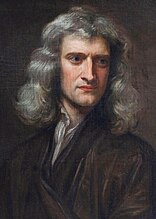 Isaac Newton, 1642 – 1727
Isaac Newton, 1642 – 1727
-
 Gottfried Wilhelm von Leibniz, 1646 - 1716
Gottfried Wilhelm von Leibniz, 1646 - 1716
-
 Leonhard Euler, 1707 – 1783
Leonhard Euler, 1707 – 1783
-
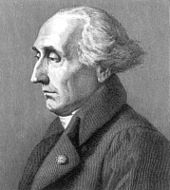 Joseph-Louis Lagrange, 1736 – 1813
Joseph-Louis Lagrange, 1736 – 1813
-
 Carl Friedrich Gauss, 1777 – 1855
Carl Friedrich Gauss, 1777 – 1855
-
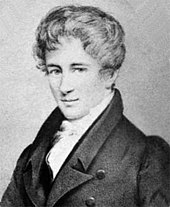 Niels Henrik Abel, 1802 - 1829
Niels Henrik Abel, 1802 - 1829
-
 Évariste Galois, 1811 - 1832
Évariste Galois, 1811 - 1832
-
 Bernhard Riemann, 1826 – 1866
Bernhard Riemann, 1826 – 1866
-
 Felix Klein, 1849 - 1925
Felix Klein, 1849 - 1925
-
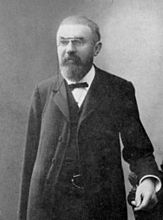 Henri Poincaré, 1854 – 1912
Henri Poincaré, 1854 – 1912
-
 David Hilbert, 1862 – 1943
David Hilbert, 1862 – 1943
-
 Emmy Noether, 1882 – 1935
Emmy Noether, 1882 – 1935
-
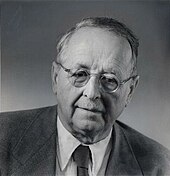 Hermann Weyl, 1885 - 1955
Hermann Weyl, 1885 - 1955
-
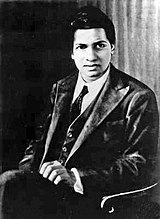 Srinivasa Ramanujan, 1887 - 1920
Srinivasa Ramanujan, 1887 - 1920
Quotations about mathematicians
The following are quotations about mathematicians, or by mathematicians.
- A mathematician is a device for turning coffee into theorems.
- —Attributed to both Alfréd Rényi and Paul Erdős
- Die Mathematiker sind eine Art Franzosen; redet man mit ihnen, so übersetzen sie es in ihre Sprache, und dann ist es alsobald ganz etwas anderes. (Mathematicians are a sort of Frenchmen; if you talk to them, they translate it into their own language, and then it is immediately something quite different.)
- Each generation has its few great mathematicians...and research harms no one.
- —Alfred W. Adler (1930- ), "Mathematics and Creativity"
- In short, I never yet encountered the mere mathematician who could be trusted out of equal roots, or one who did not clandestinely hold it as a point of his faith that x squared + px was absolutely and unconditionally equal to q. Say to one of these gentlemen, by way of experiment, if you please, that you believe occasions may occur where x squared + px is not altogether equal to q, and, having made him understand what you mean, get out of his reach as speedily as convenient, for, beyond doubt, he will endeavor to knock you down.
- —Edgar Allan Poe, The purloined letter
- A mathematician, like a painter or poet, is a maker of patterns. If his patterns are more permanent than theirs, it is because they are made with ideas.
- —G. H. Hardy, A Mathematician's Apology
- Some of you may have met mathematicians and wondered how they got that way.
- It is impossible to be a mathematician without being a poet in soul.
- An equation means nothing to me unless it expresses a thought of God.
- There are two ways to do great mathematics. The first is to be smarter than everybody else. The second way is to be stupider than everybody else—but persistent.
- Mathematics is a queen of science and the theory of numbers is the queen of mathematics.
AryaBhat: More details : http://en.wikipedia.org/Aryabhata
Women in mathematics
See also: List of female mathematiciansWhile the majority of mathematicians are male, there have been some demographic changes since World War II. Some prominent female mathematicians are Hypatia of Alexandria (ca. 400 AD), Ada Lovelace (1815–1852), Maria Gaetana Agnesi (1718–1799), Emmy Noether (1882–1935), Sophie Germain (1776–1831), Sofia Kovalevskaya (1850–1891), Alicia Boole Stott (1860–1940), Rózsa Péter (1905–1977), Julia Robinson (1919–1985), Olga Taussky-Todd (1906–1995), Émilie du Châtelet (1706–1749), Mary Cartwright (1900–1998), Olga Ladyzhenskaya (1922–2004), and Olga Oleinik (1925–2001).
The Association for Women in Mathematics is a professional society whose purpose is "to encourage women and girls to study and to have active careers in the mathematical sciences, and to promote equal opportunity and the equal treatment of women and girls in the mathematical sciences." The American Mathematical Society and other mathematical societies offer several prizes aimed at increasing the representation of women and minorities in the future of mathematics.
Prizes in mathematics
There is no Nobel Prize in mathematics, though sometimes mathematicians have won the Nobel Prize in a different field, such as economics. Prominent prizes in mathematics include the Abel Prize, the Chern Medal, the Fields Medal, the Gauss Prize, the Nemmers Prize, the Balzan Prize, the Crafoord Prize, the Shaw Prize, the Steele Prize, the Wolf Prize, the Schock Prize, and the Nevanlinna Prize.
See also
- Human computer
- List of amateur mathematicians
- List of female mathematicians
- Lists of mathematicians
- Mathematical joke
- A Mathematician's Apology
- Men of Mathematics (book)
- Mental calculator
Notes
- "Thinking About a STEM Career: Read This!". The Learning Curve. Retrieved 10 May 2013.
- "020 OCCUPATIONS IN MATHEMATICS". Dictionary Of Occupational Titles. Retrieved 2013-01-20.
- "Biography of Alfréd Rényi". History.mcs.st-andrews.ac.uk. Retrieved 2012-08-17.
- Alfred Adler, "Mathematics and Creativity," The New Yorker, 1972, reprinted in Timothy Ferris, ed., The World Treasury of Physics, Astronomy, and Mathematics, Back Bay Books, reprint, June 30, 1993, p, 435.
References
- A Mathematician's Apology, by G. H. Hardy. Memoir, with foreword by C. P. Snow.
- Reprint edition, Cambridge University Press, 1992; ISBN 0-521-42706-1
- First edition, 1940
- Paul Halmos. I Want to Be a Mathematician. Springer-Verlag 1985.
- Dunham, William. The Mathematical Universe. John Wiley 1994.
External links
- Occupational Outlook: Mathematicians. Information on the occupation of mathematician from the US Department of Labor.
- Sloan Career Cornerstone Center: Careers in Mathematics. Although US-centric, a useful resource for anyone interested in a career as a mathematician. Learn what mathematicians do on a daily basis, where they work, how much they earn, and more.
- The MacTutor History of Mathematics archive. A comprehensive list of detailed biographies.
- The Mathematics Genealogy Project. Allows to follow the succession of thesis advisors for most mathematicians, living or dead.
- Weisstein, Eric W. "Unsolved Problems". MathWorld.
- Middle School Mathematician Project Short biographies of select mathematicians assembled by middle school students.
- Career Information for Students of Math and Aspiring Mathematicians from MathMajor